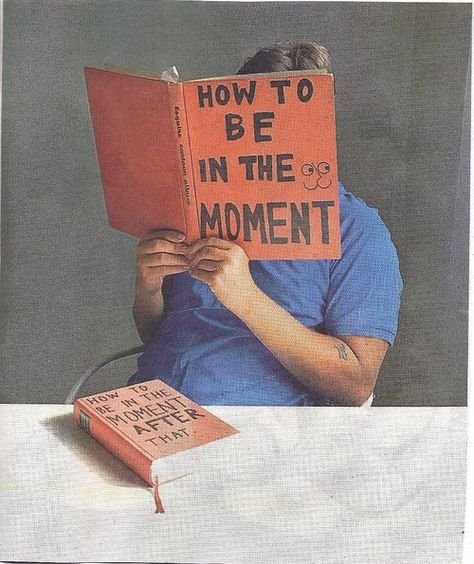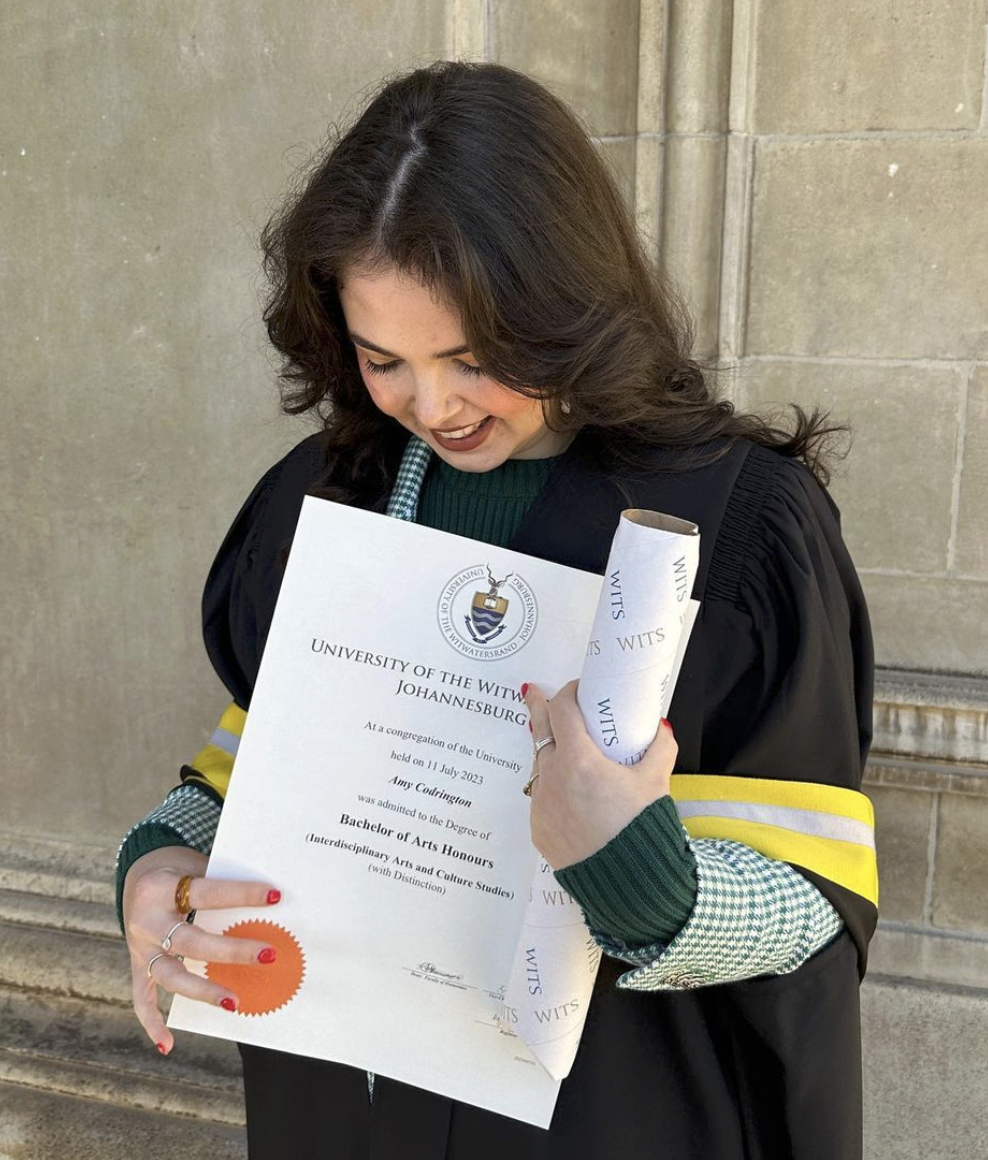The Power of Being a Generalist
When you’re a multi passionate person with a vast array of skills and a diverse depth of knowledge from your education and your experience (so, if you’re me), you might find it tricky to describe what you do and to position yourself successfully. If I’m being honest, I have been struggling recently because I am finding that I don’t really know where I fit in, or what exactly I want to be doing… And then when you add in the question eternally asked by adults… “What do you do?” Well, how do I say, without having an existential crisis that the answer is a little bit of everything…?
That existential crisis is very real and very valid, but today I’m not going to be writing about that. Rather I want to talk about one of the ways that I am reframing the complexity of who I am, what I do and the value I can bring to the world. I came across the term ‘generalist’, and after doing a lot of research I’ve realised that I am one. I’m still young, but I suppose on thing about being a generalist is that you’re always learning and growing, you don’t just become fully qualified one day. So I’ve started to call myself a generalist and I’m learning that there is power and intrigue in that.
If you were to ask Google, what is a generalist? Well, you’d be given a variety of answers (fitting), but I’ll simplify it here. In a Forbes article, Paul Genberg explains that “a generalist is a dabbler, an explorer, a learner — someone with broad knowledge across many topics and expertise in a few.” Others will explain that in comparison to a specialist, who has detailed expertise and in-depth knowledge in one specific field or sector, a generalist’s knowledge and skills might be described as T-shaped. Having a broad knowledge base that includes specialised skills in one or multiple areas. It’s the breadth and depth of knowledge that makes a generalist unique.
Expert generalists are being sought after in the world of work, as “a combination of skills is becoming more valuable than depth in each individual skill.” And if you have enough experience in each area to provide trustworthy guidance and counsel to both employees and supervisors, you become extremely valuable. More and more people are wanting their teams, their employees, “to develop a collection of skills that will endure the test of time” rather than possessing knowledge only in one niche field.
And yet until very recently I didn’t see my diverse skill set and broad knowledge base as all that valuable. It’s honestly made me feel a little frustrated, because I’m overqualified for a lot of jobs (especially entry-level jobs that are associated with people my age) and yet, as a 24 year-old I’m also under qualified for some more managerial positions and higher-paying jobs because I don’t have enough diverse experience. I think that the age thing is a problem - senior leaders and executives are hesitant to place young people, in their early to mid-20s, in positions of leadership or authority, but that’s a topic for another article.
All this to say, until quite recently I’ve viewed my experience and education as frustrating, rather than empowering, because I’m stuck somewhere in-between where I’d like to be in my career… What I’m trying to remind myself is that being a generalist has its power, and as I continue to learn and grow as a generalist, the more I will grow in my career.
And the great thing (and probably the main reason I became a generalist in the first place) is that I just get to keep on learning! I’m not stuck in one field, one specialisation forever. I never wanted to be boxed in. When I was deciding what to study, and many of my friends chose specialised paths, such as medicine or actuarial science or chartered accounting, I could not bring myself to make such a big decision. I was 18! And so I was like, what can I study that will be the most interesting and the least restrictive, without avoiding the structure that university provided. (Taking a gap year was a bit too much of an overcorrection at that point.)
I chose to do a Bachelor of Arts general degree at the University of Cape Town. Getting away from where I’d grown up was another important decision in my journey to become a generalist. When I was 18 these decisions were definitely more of a rebellion against a fixed course and fixed life trajectory, than they were a calculated and strategic decision about my future. But these choices are ones I will forever be grateful I made. Even if it’s a bit tricky right now, I know how valuable and worthwhile this decision will be in my future. I got to study so many wonderfully fascinating things, especially in my first two years before you ‘declare your major’ and although I didn’t specialise in everything (obviously), there are things I’ve had a taste of that have piqued my curiosity and triggered continual learning in my life. I did a course on Sociolinguistics for one semester which was utterly fascinating! And I did a few different Religion courses including Religion and Gender Studies, which was both insightful and invited me to expand upon all the preconceived notions I’d been raised with.
Every course I took in my undergraduate degree reminded me of just how much there was to learn, to know. And it confirmed that I couldn’t just “go and get a job” straight after graduating. I had to continue learning, and so I chose to study my Honours at Wits. But in true generalist style, I chose quite an obscure degree (one that always requires repetition and raises eyebrows). I studied my Honours in Interdisciplinary Arts and Culture Studies. Yes, that mouthful. Interestingly, the Interdisciplinary department at Wits is still so new that even many of the university’s faculty don’t know that it’s a fully functioning department within the Humanities faculty. The whole point of developing an interdisciplinary degree track is to consider the intersections and overlaps between arts, culture and humanities both academically and in everyday life. The year I spent studying at Wits was one of the most interesting and challenging years, bringing many aspects of my knowledge into conversation with one another and finding the depth of my research and knowledge truly blossoming.
And all that time, I was also working part time. I have been an editorial assistant, a photographer, a marketing specialist, a creative strategist and a social media manager. I had been on film sets, in editing rooms and producing live events. I have dabbled in a little bit of everything, using my student years to gain as much experience as I could!
So yes, I’m a generalist. Even if it took me a while to figure out that there was a name (and a desire) for someone like me, who previously had been a very unemployable person with too many interests and an inability to commit to one thing… Unlearning that mindset is the first step.
Then you might find yourself curious about the benefits of being a generalist and like, what do they even do? So if I’ve piqued your interest at all, about what a generalist really is, and what the values and benefits are for becoming a generalist rather than a specialist, then I encourage you to keep reading.
Disclaimer though, I am in no way saying that a generalist is superior to a specialist. Not at all. They’re different. The world needs specialists! I wouldn’t want my general doctor to perform a really intricate surgery on my brain - I’d want a neurology specialist for that! All I’m saying in this article, is that not everyone needs to be a specialist. And so for the people like me, here are some ways of thinking about generalists and a generalist’s knowledge and value that you may not have considered.
YOu have time to figure it out.
A generalist’s skills take time to cultivate. And you usually have to go through the not so fun process of figuring out what you do and don’t like doing. There’ll most likely be a lot of trial and error, but that is part of the fun! You have the ability to juggle many interests, rather than just one, which gives you space to explore multiple paths, and learn a lot. You won’t learn it all in a 3 year degree, or in a single professional qualification. But if you view every experience, even those seemingly silly, as opportunities to learn from, then your life will be fascinating and immensely rewarding. And you will indeed figure it out as you go. Try and see that for the strength it is.
2. You are incredibly creative.
Your ability to move into different fields, and to absorb different types of knowledge is also likely to make you more creative and agile. You don’t have to be a creative artsy-fartsy type to be creative. Your creativity might be in your ability to connect the dots in new ways. Your ability to weave in and out of different spaces and see the connections between things is a powerful skill. Your ability to see both the intricate details and the big picture gives you a different, and undeniably valuable, perspective compared to your more specialised peers. Allow these perspectives, these alternate viewing positions to inspire your creativity and encourage your learning.
3. Being adaptable and resilient will get you far.
Generalists boast a diverse range of skills. Often called a “jack of all trades, master of some,” generalists have knowledge across multiple areas and while their knowledge might not run deep in every one of those areas, something they are highly skilled at is adapting. They can very quickly adapt to changing situations, making them extremely resilient team members in a constantly shifting world.
In a world of never-ending disruption, being able to look at things from a wider lens and find effective ways to navigate change is what adaptability is all about. In general (excuse the pun), generalists are the ones leading their teams of specialists through disruptive times, because they are the ones considering both the intricate and immense causes, effects, consequences and possibilities that are occurring around them.
4. You don’t have to fear becoming bored
This is definitely a very personal fear, so it may not be a universal point for generalists. But because of your interests and hobbies and knowledges, you have a diversity from which to build your life. One thing that I am having to unlearn for myself, in order to be my most genuine self, is that not every move in my life has to be an “upwards” move along a linear life/career trajectory. Yes, perhaps I won’t be paid as much as my accountant and engineer peers, but shifting horizontally in my career into a field of interest I haven’t yet explored might be the move that most aligns with who I am and the life I want to live. It might be the move that saves my soul, even if it doesn’t immediately elevate my bank statement.
5. Every opportunity is one for insatiable learning.
Everyone is different, and you don’t have to stick to anyone’s assigned idea of what success looks like. If you’re bored in a specific job, or within a specific field, you’re allowed to pivot. To shift entirely in another direction. That doesn’t mean you’ve failed. It means you’ve been true to your heart and desires. It means you’ve learnt from that experience and are ready for a new chapter.
So take what you’ve learnt and use the skills to help you in whatever you do next. And so on. Instead of berating yourself for not moving in a predetermined direction, or getting whatever salary you think you should be making, reframe your path as one of continual growth and learning. There’s something uniquely powerful about that.
6. You have the capacity to handle Complexity.
The sort of complexity I’m talking about isn’t necessarily the complexity associated with the minute details that become very specific in a specialised context, but rather the complexities that arise in teams, in life, in unknown situations. Specialists handle complexities well in their fields, but generalists handle complexity well more broadly. There are a few possible reasons for this.
Generalists often learn to ask interesting and deep questions that trigger people to really think about their answers. By asking good questions, generalists often trigger the untangling of complexity.
Generalists are highly collaborative and are often the leaders who pull out people’s best skills in a project. They know which specialists are best at what, and who to empower at specific points.
Generalists know how to delegate. Because they do not have the depth of knowledge for every situation, generalists know how to work with people who can fill in their gaps. Being able to curate teams and then direct their teams through complicated projects and situations makes them effective leaders.
7. Generalists are great innovators.
When you’re a generalist and you’ve learnt the skills I’ve mentioned above, including how to collaborate, become a relentless learner and a curious and creative person, you will be a great innovator! You will have an edge, a fresh way of seeing and this is one of the key things you need to become truly innovative.
On his blog, Bill Gates shared one of his favourite books on being a generalist, Range by David Epstein, saying that we actually need is more people “who start broad and embrace diverse experiences and perspectives while they progress.”
Because as you progress, you’re able to observe, reflect and adapt to different situations. In another blog post, Gates reflects on Epstein’s book saying that researchers found that great innovators as most often “systems thinkers” with an “ability to connect disparate pieces of information from many different sources.”
His book is quite revolutionary, and often provocative, especially to audiences socialised on the importance of specialists. Epstein examined some of the world’s most successful athletes, artists, musicians, inventors, forecasters and scientists. He discovered that in most fields—especially those that are complex and unpredictable—generalists, not specialists, are primed to excel.
There are likely many more reasons why being a generalist is something you can be excited about and pursue for yourself. For now, let me share the three tips that have helped me in my pursuit. Because you can be a generalist, but you can also be an expert generalist. (I’m an overachiever so obviously I’m pursuing expertise and mastery… even as a generalist!)
Tip #1: Say Yes more!
Say yes to more opportunities, more experiences! Don’t let other people hold you back from pursuing the various different interests you have. Allow each path you take to be one that you actively choose. Say yes to things that interest you, things that inspire you, things that will allow you to help others in your unique way.
Tip #2: Be brave!
Do things that scare you. Move out of your comfort zone. Say yes, even when you’re afraid, or when you think you’re not good enough yet. There’s a great way to get better at something - it’s called doing the thing. Practicing the thing. But to get there, you have to be brave.
Tip #3: Fill in the gaps
There is always more to learn. As a generalist, there are likely some gaps in your knowledge. Allow that childlike wonder and relentless curiosity to drive you, move you forward, or sideways. Wherever it may lead, learning is everywhere and you’re meant to explore.
And just remember, it’s never too late to change your life. To change the trajectory of your life. It’s never too late to try something new. And it’s okay to fail. In fact, I highly encourage it! You can thrive - if only you are brave enough to take a shot, to have a go, to try. As Epstein’s book reveals, “Failing a test is the best way to learn. Frequent quitters end up with the most fulfilling careers. The most impactful inventors cross domains rather than deepening their knowledge in a single area. People who think broadly and embrace diverse experiences and perspectives will increasingly thrive.” That’s the power of being a generalist.














